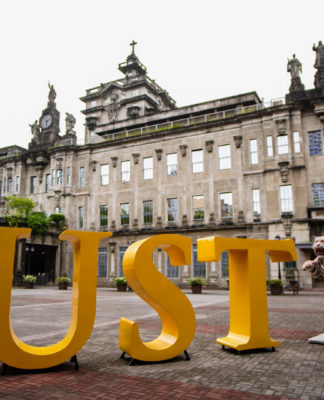 “MALAYSIA could sue us.”
“MALAYSIA could sue us.”
Such utterance by Islamic Studies specialist Julkipli Wadi of the University of the Philippines grabbed my attention and made me wonder. After attending a seminar last month where Wadi discussed the peace process between the national government and the Moro Islamic Liberation Front (MILF), I asked myself whether Malaysia can really bring the Philippines to the international court because of the derailed signing of the Memorandum of Agreement on Ancestral Domain (MOA-AD).
I don’t think so.
Wadi agreed as well, but did not give enough explanations why. But four things should be understood as to explain Malaysia could and should not sue the Philippines.
First, Malaysia has been very cautious to revive its past conflict with the Philippines due to both countries’ claims of sovereignty over Sabah. Malaysia has assumed that if such conflict arises anew, the Philippines, backed by history and legal documents, could shift its attention from the peace processes and prolong the Sabah dispute. Malaysia would not like to see that happen as it would rather assure first the autonomy of the Bangsamoro and then use that degree of independence from the Philippines to strengthen the Malaysian claim of sovereignty over Sabah.
Second, the members of the Association of Southeast Asian Nations (ASEAN) have adopted the “non-interference” principle in the internal affairs of each other in order to circumvent any political dispute among them. ASEAN has already learned its lesson from the failure of Maphilindo due to Sukarno’s Konfrontasi in 1962 and the dissolution of the Southeast Asian Treaty Organization in 1977. The region has understood since then that any amity would certainly weaken when politics sets in, but Malaysia seems to be wise enough in getting its interest well-focused while trying not to be involved in any kind of misunderstanding with its neighbors.
The third reason is crucial to the religious and energy resource relations of Malaysia with influential Arab countries. Both Malaysia and the Moro National Liberation Front (MNLF) are members of the Organization of Islamic Conference (OIC) dominated by Arab leaders. OIC recognizes the MNLF as the sole and official representative of the Bangsamoro struggle and now that the latter has departed from the scene after the creation of the Autonomous Region in Muslim Mindanao in 1989, Malaysia is now unable to endorse the MILF’s appeal to join the conference and persuade its members to stop the supply of oil in the Philippines until the national government pursues the MOA-AD. The Conference could only give verbal support.
Finally, the constitution wields sovereignty over any domestic agreement. Malaysia holds no jurisdiction over the MOA-AD; it cannot take the Philippijnes to account for halting the MOA signing and failing to set a clear timetable for the whole peace process. Any insistence of Malaysia against the Philippines would be immature as it could only “facilitate” the peace process.
After a two-day trip to Malaysia last September 10, presidential peace adviser Hermogenes Esperon said that Malaysian prime minister Abdullah Badawi was dismayed over the issue. Sharing the same sentiment, Wadi wrote in his column in the Japan Times that “the MOA-AD and the whole peace process have been held to hostage by politics from within the national government.”
The stalled agreement has indeed resurrected worries over security issues in the south.
However, this is a political dispute that must be patiently settled between the national government and MILF, in what should amount to “preventive diplomacy,” as coined by United States Institute of Peace senior scholar Michael Lund. Malaysia should think twice before joining the fray.
***
Congratulations to this year’s junior batch of Asian Studies and Political Science (Pol Sci) for successfully organizing the seminar, “The Philippines and the Islamic World: Peacemaking and Foreign Relation” at the Thomas Aquinas Research Complex last September 11.
This seminar would not also be possible without the guidance of Pol Sci professor Dennis Coronacion, Asian Studies coordinator Arlen Ancheta and Department of Social Sciences chair Emmanuel Lopez.
We would like to thank Wadi, Political Affairs minister Andhika Bambang Supeno of the Embassy of the Republic of Indonesia, Office for Muslim Affairs External Relations director Datu Tahir Sinsuat Lidasan, Jr., Pol Sci professor Edmund Tayao, and Pol Sci alumnus John Michael Rico for gracing the seminar.














